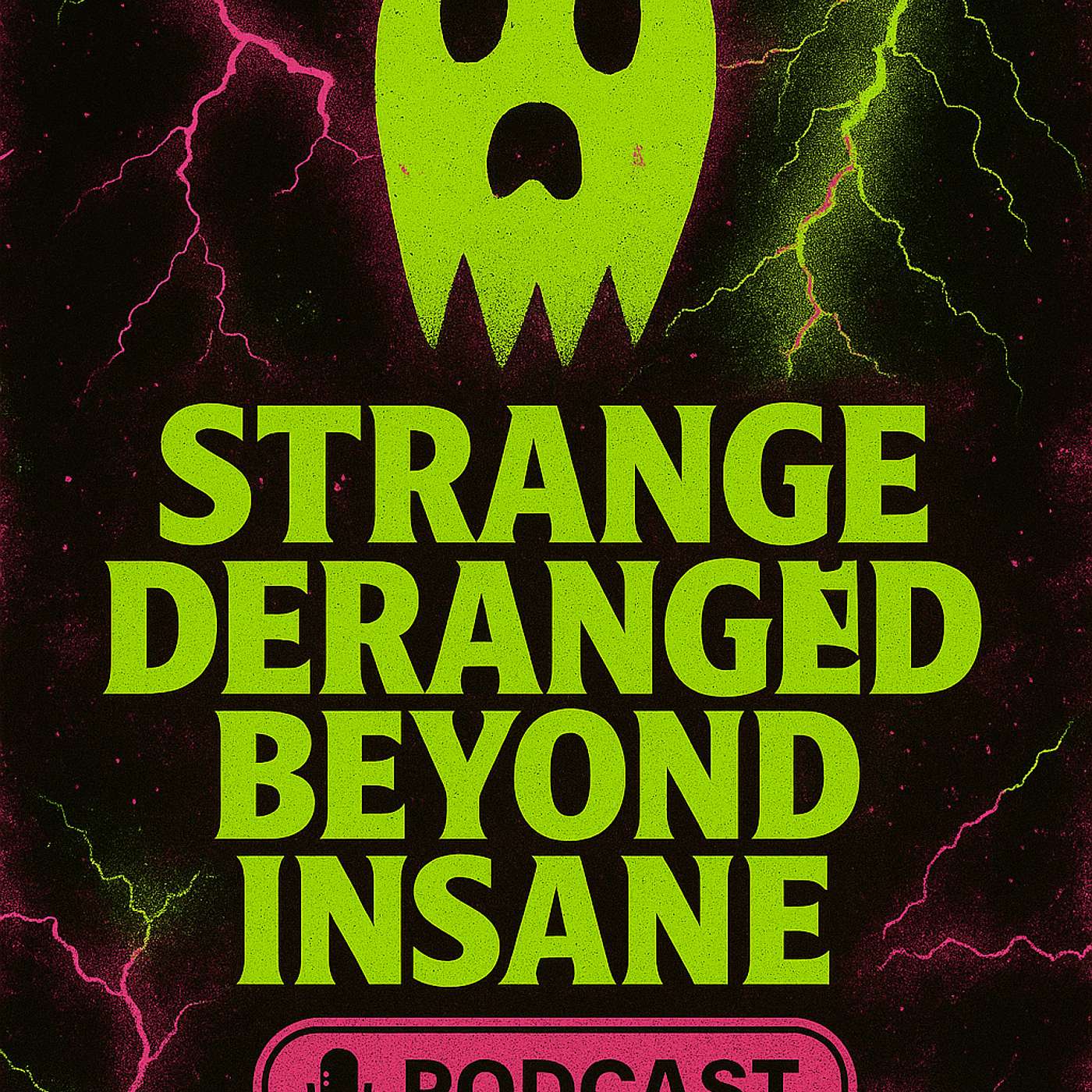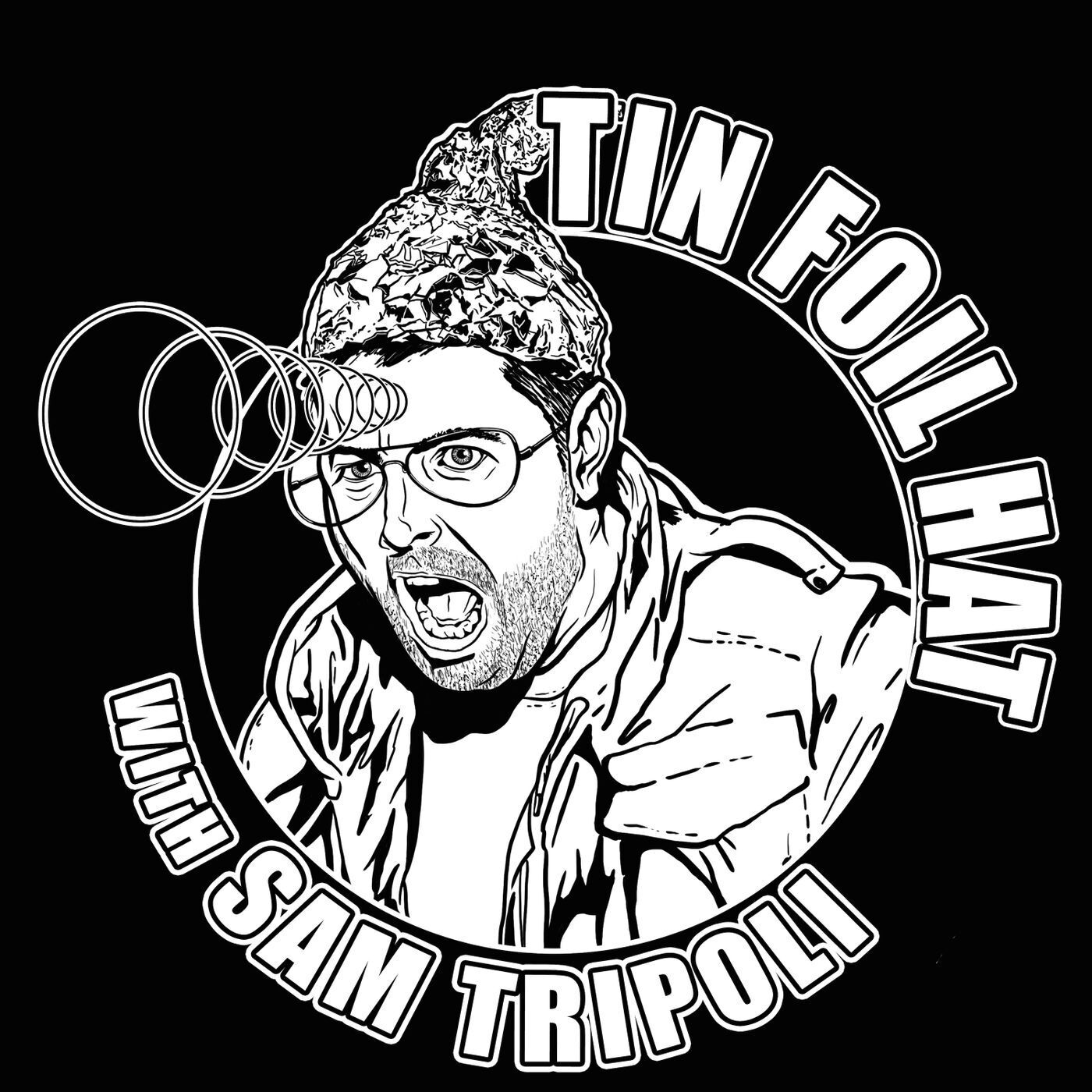
Strange Deranged Beyond Insane
Everything paranormal and unexplained. History of buildings old hospitals any haunted locations along with personal experiences. Famous murders in Michigan. Ufo and extraterrestrial. Urban legends of Michigan. Folklores witches and tribal tales. Horror movies and unexplained curses and deaths on set.
Strange Deranged Beyond Insane
Minds and Mysteries: AI-Driven Head Transplants, Disney Legends, and the Mandela Effect Perplexity
Can you imagine a world where head transplants not only become a reality but are driven by cutting-edge AI technology? Join us for an electrifying episode where we examine Brainbridge's ambitious quest to revolutionize medical science with AI-driven head transplant systems. We'll uncover the potential life-changing impacts for patients battling paralysis, neurological diseases, and untreatable cancers. Plus, we'll unravel the mystery behind Walt Disney's rumored cryogenically preserved head and ponder its connection to this futuristic technology, blending intriguing speculation with groundbreaking science.
Next, we'll tackle the mind-bending Mandela effect, challenging our perceptions of reality with collective false memories. From Snow White's iconic line to the curious case of The Home Depot's name, we'll share fascinating examples that make us question what we truly remember. We'll also explore how the pandemic has played tricks on our memories, altering our recollections of recent events. Join us as we navigate these bewildering phenomena and their profound implications on our understanding of memory and reality.
Good evening everyone. It's your host, melissa at Strange Strange Band Insane, alright. So tonight we even have an even more insane topic. I could not believe that this was real. I had to like really look into it and even like cross-check it.
Speaker 1:But anyways, there are claims this is true that they have created an AI head transplant system and there's plans to perform the first procedure within a decade. A head transplant Crazy, right, like mind-blowing, all right. So it says that scientists put their heads together, no puns intended. Scientists put their heads together no puns intended for an insane see, insane, insane medical breakthrough. Neuroscience and biomedical engineering startup, brainbridge, and they announced that it has created an AI mechanized system for performing head transplants. The procedure would graft a head onto the body of a brain-dead donor, maintaining the memories, cognitive abilities and consciousness of the transplanted individual. Wow, so the researchers believe that the innovative surgery would help patients with untreatable conditions like paralysis and certain cancers, as well as neurological diseases like Alzheimer's and Parkinson's. Hashim Al-Ghali, the scientist behind the project, said that the research has been evaluated by experts across multiple related fields. The goal for our technology is to push the boundaries of what is possible in medical science and provide innovative solutions for those battling life-threatening conditions. Our technology promises to open doors to life-saving treatments that were unimaginable just a few years ago. Brainbridge plans to utilize surgical robots and artificial intelligence to reconstruct facial feature for full facial muscle use. Process employs advanced high-speed robotic systems to prevent brain cellion of the spinal cord, the nerves and the blood vessels. So y'all this is a real fucking thing Like this is going to happen in like the next 10 years. Brainbridge claims the first procedure will be conducted within eight years. The company said it's publicizing the procedure so far in advance to better attract top scientists to the project. Brainbridge says that the head transplants are only the beginning. In the short term, we expect the project to result in spinal cord reconstruction, breakthrough and whole body transplant, but in the long term the project will expand into areas that will transform health care as we know it.
Speaker 1:Okay, so that's a lot to talk about and you know how I am with. You know pronouncing names and anything medical, anywho. So I was talking to a customer at work I think it was Friday about this, because I was so fascinated that this is like real news and I'm going to call him a kid. I think he was like 21 or 22,. He said and he goes. So his first, literally his first response to this was well, what about Walt Disney? And I said, well, what about Walt Disney? And he goes. Well, he goes, this isn't so far fetched. And I said, yeah, I go. It's not because it literally made headlines Like it's definitely in the process, right, and he goes. Well, the reason why I bring up Walt Disney is because he's like I feel like Walt Disney would be the first head that they would test out, because we all know that the rumors that Walt Disney's head is frozen, okay. So I was like, wow, mind-blown, you know that that kid came up with that, so he leaves. And then one of the girls was talking to her customers about the head transplant thing, because I was talking about it and of course I jumped in and I was like, oh yeah, like you can even look it up, it's a real thing. And the first thing that this guy says back to her is he says, well, what about Walt Disney? And I was like, wow, the synchronicities today, right. And I wanted to know, like what his take on that was. And he was like, well, walt Disney, you know, we all know that his head's frozen and that he would probably be the first one, because Walt Disney wanted to be frozen, so let's jump into this one now. So was Walt Disney frozen after death?
Speaker 1:There are some rumors suggesting that Walt Disney, the beloved creator behind Mickey Mouse and Disneyland, was cryogenically preserved after his death in 1966. Further, there's a rumor claiming that Walt Disney's frozen body is hidden deep beneath the Disneyland grounds in Anaheim, california. Some claim that he is under Cinderella's Castle or under the Pirates of the Caribbean ride. No one can pinpoint exactly where the rumors about Walt Disney allegedly frozen body, as well as the hiding place, even came from. In 1964, robert Edinger published a book, the Prospect of Immorality, which created a buzz about chronic cryon cryonic, I think it's cryonic preservation, whatever. So basically being frozen after you know you die. So, with Disney passing away just two years later, the idea of him freezing his body wasn't implausible. However, the rumors didn't just start there. They continued long after his death. In 1986, 20 years after Disney's death, arthur Leonard Moseley published the biography Disney's World. The book claimed that Disney was fascinated by cryonic preservation as his health declined and that he had his lungs surgically removed and preserved in its entirely, in case he was later brought back to life.
Speaker 1:Um, that's crazy. I don't know. I mean we'll see, but this, this whole like head transplant thing is super real. I mean you guys can look it up and I'm sure a lot of people have heard about it, but I thought it was horrifying and very brave and courageous in the medical world. I find it extremely fascinating too, and then I think of all the things that could go wrong. All right, so another thing that I've been seeing a lot of, and I've kind of been doing a little bit of digging, is this whole doomsday clock thing.
Speaker 1:And then there's also, like, the dark clock theory. So the doomsday clock is a symbol that represents the likelihood of a human-made global catastrophic event. Let's just say, in the opinion of the members of the Bulletin of the Atomic Scientists, maintained since 1947, the clock is a metaphor, not a prediction for threats to humanity from unchecked scientific and technological advances. A new theory has been on the rise, stating that the clock is demonstrating demonic relations to the number 6 in equal parts, while it continues to spin around and it always comes out 666 or equal parts of 12. And if you subtract across or diagonally, it's still 6. So this is a far stretch, but that theory is very interesting and I guess, like the doomsday clock theory meets the dark clock theory and then it also gets like very biblical and it kind of comes into this whole like religious, I mean, like I guess apocalypse that everyone's talking about and I didn't want to get too deep into it because there's so much, there's a lot of talk but not a lot of backup, right? So, yeah, um, you know you guys will have to, you know, link up with me and let me know what you guys think about that. And if there's any doomsday clock people or dark clock theory people out there, please get ahold of me, cause I do want to learn more about it. Please get a hold of me, because I do want to learn more about it. All right, so there is a lot new Mandela effects that are on the horizon. A lot of them fucking bother me because I'm like, wait a minute, I know that I'm not crazy, okay, so here's a Mandela effect for you.
Speaker 1:So, alice in Wonderland, I remember a lot of people I talk to remember when the cat says we're all mad here and that's what we all remember. Now people are saying that they remember the cat saying most everyone's mad here. No way, there's no way. All right, you guys. So, snow white, what do we all remember? Um, with the dwarves. Hi ho, hi ho, it's off to work, we go. Now people are remembering for whatever reason Hi ho, hi ho, it's home from from work, we go. There's no way I gotta take a sip of alcohol because that like really annoys me. Okay, here's a big one too. Um, we remember Tinkerbell in the intro to Walt Disney Pictures. She's like like dotting the sparkly stars with her hand, I'm sorry, with her wand in her hand, you know. And now people are saying that she never existed in the intros. I'm like, how do you not remember that? Okay, mickey Mouse always had fucking suspenders on? I know, he, that he always wore suspenders. And now people are saying that the suspenders never existed.
Speaker 1:Okay, here's another Snow White one, and I was a big Snow White fan, I was Snow White. Once, for my birthday, my mom had me a Snow White party. I'm telling you, it has always been mirror and mirror on the wall. And people are always saying, now, not even younger people, like even our age, older, like all all ages, are saying that she says magic mirror on the wall. No, no, no, it's always been mirror. Mirror on the wall, not magic mirror on the wall. This one's funny. The jungle book, um, the character when he has a coconut bra on, remember, and he's like dancing around. People are saying that he never wore a bra like a coconut bra, which I find hilarious because as a kid I thought that was so funny. All right, right.
Speaker 1:And then Cruella de Vel, her fur coat. I always remember it had Dalmatian spots on it because that's why she wanted all the Dalmatians. She was going to kill them because she was an evil bitch and take their fur. So now people are saying that she just wore a basic white fur coat. That's not what I remember, but whatever, I wish it wasn't so late because I'd get my brother in on this one.
Speaker 1:So the Jordan Jumpman you know Jordan, the brand Michael Jordan, his logo, jordan Jumpman symbol. He always had shorts on right, but now people are saying he wore pants. I'm like no, no, no, no, um, oh, this one's funny. So earth wind fire song has always been do you remember the 21st night of September? And I know this song. First of all, my parents were huge, um, fans of earth wind fire. And then 21st September, that's my birthday, september 21st, um, so I know this song and the song is called fucking September. But now people are saying that it's the 21st of December, which is so funny again because the song is literally called September. Oh my god, it literally is a thing now Like I don't know if these are like Mandela effects or if people are just, but we're gonna get into that in a second though, all right. So here's another one.
Speaker 1:So most of us I can't say all, but most of us remember Home Depot. Home Depot, that's what it says on there. It's always been that way, home Depot. Now, even when you look up pictures, it's showing the Home Depot Even on like the storefront signs. And I know like a lot of people would be like, okay, that's not a big big deal, okay, that's not a big big deal and it's not like.
Speaker 1:My thing is is that like it's? It's not like a bad thing? But why do they not want us to remember it? How it was? You know, like, like, uh, my husband mentioned he was like well, like in the Disney stuff, right, like most of these younger generations won't have access to like the original, you know VHS, whatever. Okay, I understand that, but you can't say that this stuff never existed, because it did so why not just be like hey, we know it's not available like that anymore. That's old times, these are. This is how we want it to be perceived now. But, like you can't sit here and tell a group of us, a whole, many, many, many thousands and thousands of people say, oh, that never existed. So that brings me into the false memory, mandela. Okay, so I think this is what's happening. Okay, so, examples and explanation of the Mandela effect. The Mandela effect is a type of false memory that occurs when many different people incorrectly remember the same thing. It refers to a widespread false memory that Nelson Mandela died in prison in the 1980s.
Speaker 1:Memories are not always precise recordings of events. Okay, I understand that and there is explanations for it, but this is what I think. I will always go back to the pandemic. The pandemic did something to the human race and I don't know why we all have these different memories. Some people, like, lost a lot of their. I will always go back to the pandemic. The pandemic did something to the human race and I don't know why we all have these different memories. Some people, like, lost a lot of their memories. Some people remember vaguely. Some people, like me, remember precisely and for whatever reason. We all are remembering different things and there's been pictures and evidence and videos to show that these other things, these in this past tense, how we remember they did exist, but now they say that they didn't exist. I just like it's just really bothersome to me, like why you could just sit there and say that these things don't exist because we know that they do, just like the Berenstain Bears, and now it's Berenstein. Like that's an example. Like even the text on the book is different than what it was. So I think I don't know. I think one day it will all make sense, but I don't think it's going to be anytime soon. But I just found all this very interesting tonight and I definitely want to hear from you guys. Please email me at ghost sisters 2124. Again, that's ghost sisters 2124. At Gmail. You can also find Strange Strange Beyond Insane on any platforms that you listen to podcasts on. Find me on YouTube on TikTok. If you put in Strange Strange Beyond Insane, it will show you TikTok YouTube, facebook. Again, buzzsprout has a feature that I can get fan mail. Like I said, if you guys want to make suggestions or just, you know, chat on there, text me, tell me the episode was great, tell me it sucked, what you think I could do better, whatever you want. But I also just want to always put it out there that I do want to hear from you guys and please, whenever you want to hop on here and collaborate. I love having people on, I love having co-hosts, and that's all for tonight. So just to sit there and pick at your brains a little more, like I always do, let me know what you think. All right, you guys. Have a good night. We'll be talking soon.
Podcasts we love
Check out these other fine podcasts recommended by us, not an algorithm.

Strange Deranged Beyond Insane
Melissa
Haunted Mitten Podcast
hauntedmitten
Tin Foil Hat With Sam Tripoli
Sam Tripoli
Mystic Mitten Radio Show
Mystic Mitten Paranormal



